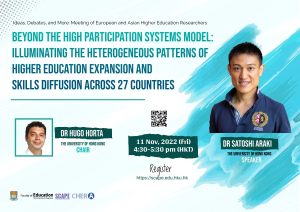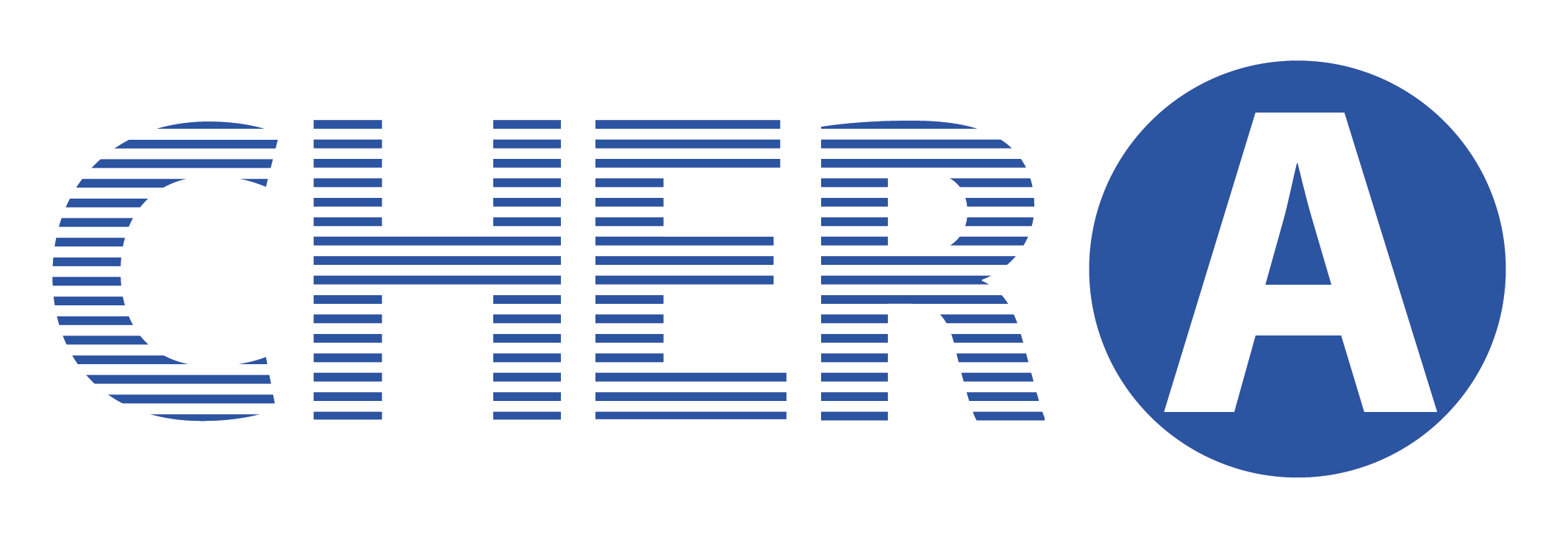Ideas, Debates, and More: Meeting of European and Asian Higher Education Researchers Series
Beyond The High Participation Systems Model: Illuminating The Heterogeneous Patterns Of Higher Education Expansion And Skills Diffusion Across 27 Countries
Date: November 11, 2022 (Friday)(Hong Kong Time)
Time: 16:30-17:30
Chair: Dr Hugo Horta, the University of Hong Kong
Speaker: Dr Satoshi Araki, the University of Hong Kong
Abstract
Over the decades, higher education has markedly expanded worldwide. Alongside its trajectory, scholars have investigated how such high participation systems (HPS) affect social stratification, with close attention to (in)equality in educational opportunities and heterogeneous/declining returns to tertiary degrees. While HPS have thus been the fundamental concept for education and social science research, recent studies argue that the accumulation of highly skilled human resources, or skills diffusion, operates as a distinct societal trait for stratification. However, we know little about how higher education expansion (EE) and skills diffusion (SD) have progressed within societies and how such pathways differ cross-nationally. Using the large-scale OECD data for 27 countries in tandem with the typological framework “EE-SD Model,” I find five distinctive societal clusters according to heterogeneous trends of EE and SD: (1) reaching universal higher education with mid-high skills (universal escalator); (2) moving towards universal escalator with mass higher education (mass escalator); (3) improving skills with relatively limited higher education expansion (mass elevator); (4) enhancing higher education without explicit skills development (mid-skilled travelator); and (5) rising from low levels of education and skills (emerging). These frameworks/findings, along with the HPS model, will advance comparative studies on (1) the qualitative differences in higher education and related social systems that affect the process of EE and SD; (2) social inequality in educational attainment and skills acquisition; (3) returns to higher education and skills including their distribution across individuals with diverse socio-demographic attributes; (4) the societal-level consequences; and (5) typologies of societies. This talk is based on my recent publication in Higher Education (https://link.springer.com/article/10.1007/s10734-022-00905-w).
Bio
Dr Araki holds his DPhil in sociology from the University of Oxford and an MA/BA from the University of Tokyo. Prior to starting his academic career, he had extensively contributed to policy-making as a consultant of the World Bank/Global Partnership for Education, a researcher of the Mitsubishi Research Institute, and a fellow of the Southeast Asian Ministers of Education Organization – Regional Centre for Higher Education and Development (SEAMEO-RIHED), among others. His current research ranges from social stratification and inequality to the sociology of education and work, well-being, and research methods. His work has appeared in top journals across disciplines, including the American Sociological Review, European Sociological Review, Higher Education, Journal of Happiness Studies, and Journal of Applied Gerontology.

